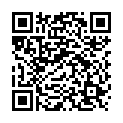|
|
|
| Module code: E104 |
|
4V+1U+1P (6 hours per week) |
|
7 |
| Semester: 1 |
| Mandatory course: yes |
Language of instruction:
German |
Assessment:
Written examination + 3 assessed lab reports
[updated 10.03.2010]
|
E104. Biomedical Engineering, Bachelor, ASPO 01.10.2011
, semester 1, mandatory course, course inactive since 28.11.2013
E104 Electrical Engineering, Bachelor, ASPO 01.10.2005
, semester 1, mandatory course
|
90 class hours (= 67.5 clock hours) over a 15-week period.
The total student study time is 210 hours (equivalent to 7 ECTS credits).
There are therefore 142.5 hours available for class preparation and follow-up work and exam preparation.
|
Recommended prerequisites (modules):
None.
|
Recommended knowledge:
None
[updated 10.03.2010]
|
Recommended as prerequisite for:
E203 Fundamentals of Electrical Engineering II
E204 Measurement and Instrumentation Engineering I
E302 Measurement and Instrumentation Engineering II
E303 Electronics I
E304 Electrical Engineering Theory I
E403 Systems theory
E404 Electric Power Supply Systems I
E405 Electrical Machines I
E406 Power Electronics I
E408 Industrial Control Technology
E412 Fundamentals of Transmission Technology
E415 Mobile Communications Systems
E504 Signal and Image Processing
E506 Building Services Engineering I
E513 High-Voltage Engineering I
E515 Communications Engineering
E521 Integration-Compliant Circuit Engineering I
E601 Microprocessors II
E614 Telecommunications Electronics
[updated 13.03.2010]
|
Module coordinator:
Prof. Dr. Marc Klemm |
Lecturer:
Prof. Dr. Marc Klemm
[updated 10.03.2010]
|
Learning outcomes:
After successfully completing this course, students will have acquired the skills and an understanding of those fundamental aspects of electrical engineering necessary to solve problems in the areas ‘DC systems’ and ‘the electric field’ that arise in all later more specialist courses. In particular, students will have learned the basic methods for analysing problems in electrical engineering.
[updated 10.03.2010]
|
Module content:
Fundamentals
Physical quantities, the MKSA system of units, physical value equations, numerical value equations
Direct current systems
Electric charge, current, source, voltage, electrical circuits; ohmic resistance: temperature dependence, types of resistors, preferred number series, circuit configurations, Kirchhoff’s laws, current and voltage dividers, extending the measuring range, ideal sources, equivalent sources, circuit configurations, power matching,
Network theorems: equivalent resistance, equivalent two-ports, the superposition theorem, loop current method, node voltage method, graphical techniques, determination of the operating point of linear and nonlinear components attached to a power source
The electric field
Fundamental quantities: field strength, displacement current density, basic laws;
Calculating electric field strength: point, linear and surface charge density, superposition, electrical potential, voltage, interfacial phenomena; capacitors; layered dielectrics; energy and force;
Electric flux fields: charge flow in a vacuum, solids, resistance of inhomogeneous systems
displacement current, RC circuits
Laboratory work
Topics: direct current systems; the electric field
[updated 10.03.2010]
|
Teaching methods/Media:
Presentations, blackboard, lecture notes
[updated 10.03.2010]
|
Recommended or required reading:
Ameling: Grundlagen der ET (Band 1 & 2)
A. von Weiss: Allgemeine ET
Möller: Fricke; Frohne,Vaske, Grundlagen der ET
Bosse: Grundlagen der ET (Band 1-4)
Lunze: Wagner, Einführung in die ET Lehr- und Arbeitsbuch
Clausert: Wieseman, Grundgeb. der ET (Band 1-2)
Weißgerber: ET für Ing. Band 1-3
[updated 10.03.2010]
|


